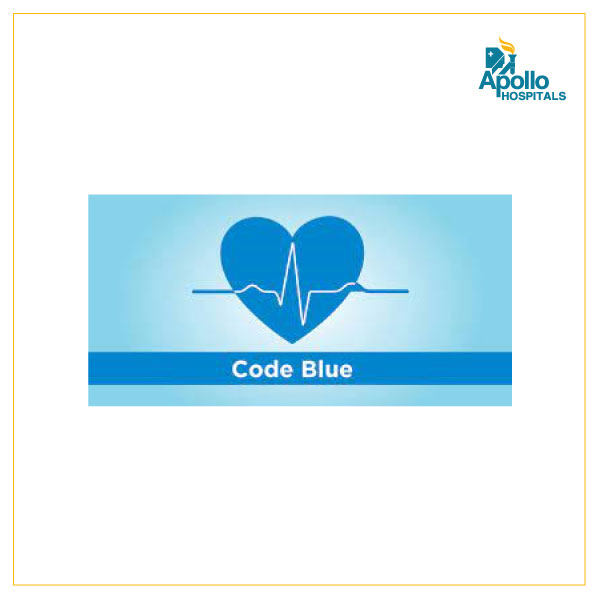Could not find what you are looking for?
- Health Library
- Code Blue
Code Blue


Verified by: Dr. Akshay Chhallani, Consultant Critical Care Specialist & Medical Advisor, Apollo Hospitals Navi Mumbai
What is Code Blue?
“Code Blue” is a term used in hospitals and healthcare facilities to indicate a life-threatening emergency situation in which a patient’s heart has stopped beating, he/she may have fallen unconscious or is unresponsive, etc., and they require immediate resuscitation. In such a situation, a team of healthcare professionals or known as resuscitation teams, including doctors, nurses, and respiratory therapists, come together to perform life-saving procedures to revive the patient.
What happens during a Code blue?
When a Code Blue is announced, the team responds immediately, rushing to the patient’s bedside with all necessary equipment. The team leader assesses the situation and assigns roles to each member. The team works in a coordinated manner, with each member performing their specific task, such as administering medication, performing chest compressions, or providing oxygen or using defibrillator as per American Heart Association (AHA) guidelines.
Steps in Code Blue
- Chest compressions: The first step in a Code Blue is to start chest compressions to provide circulation to the patient’s vital organs. While this is happening, the team leader may ask the respiratory therapist or nurse to provide oxygen (through an Ambu or oxygen bag) intermittently in a defined ratio with the heart compressions, and the doctor may administer medication, such as epinephrine, to stimulate the heart.
- Use of defibrillator: The team may also use a defibrillator, a device that delivers an electric shock to the heart, to try and restart the heart’s rhythm. The defibrillator is typically used after a few minutes of chest compressions have been performed.
- Time management: During a Code Blue, time is of the essence. The team must work quickly and efficiently to maximize the chances of reviving the patient. The team leader keeps everyone on task, communicating any necessary changes or updates to the team. In some cases, despite the team’s best efforts, the patient may not respond to resuscitation efforts. In such cases, the team may stop resuscitation and declare the patient dead.
- Team discussion: After the Code Blue is over, the team may debrief to discuss what went well and what could be improved. Such debriefings can help the team learn from the experience and improve their response in future emergencies.
Apollo Hospitals Navi Mumbai has a fully equipped critical care unit with a highly experienced team to handle all emergency situations occurring in the hospital. If you face any medical emergency outside the hospital, you can call 1066, an emergency number for all, for immediate assistance from Apollo Hospitals Navi Mumbai.
In conclusion, a Code Blue is a life-threatening critical emergency situation in a hospital that requires a coordinated team effort to revive the patient. The team works quickly and efficiently, using various techniques to restart the patient’s heart. The team’s efforts can sometimes result in the successful resuscitation of the patient, while other times, the patient may not respond to the resuscitation efforts.
Dial 1066 in case of medical emergency.








